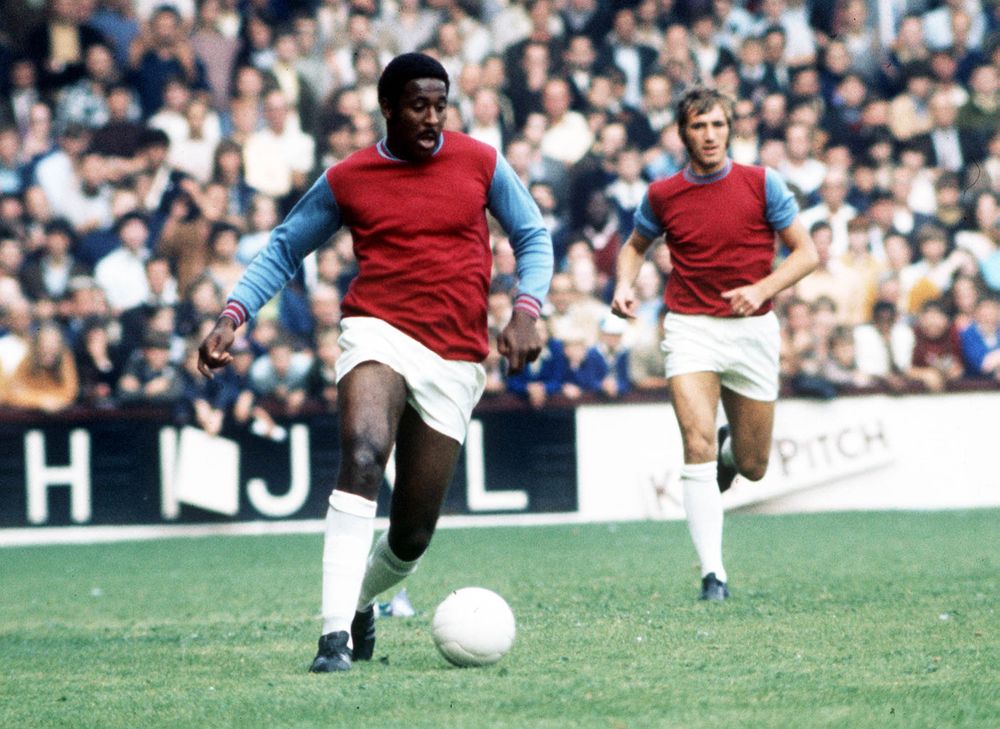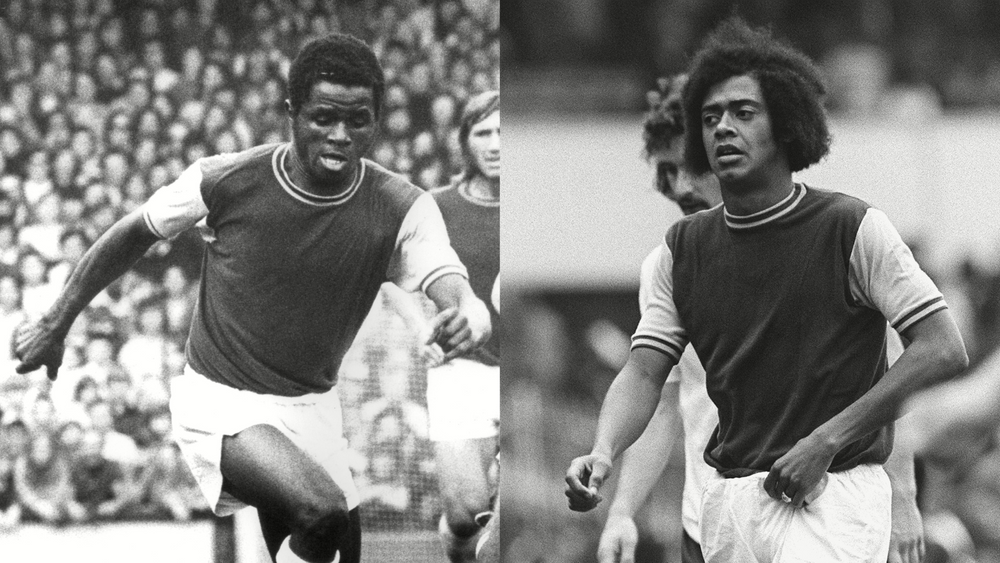When West Ham United entertained Tottenham Hotspur at Upton Park on Easter Saturday in April 1972, two late changes to the starting XI would see Clyde Best, Ade Coker and Clive Charles write themselves into the EFL history books. The Hammers became the first Club to name three black players in the starting line-up in a league game. A matchday programme uncovered from the game that day showed the scribbled-out amendments to the chosen eleven by then-boss Ron Greenwood – who would later see Viv Anderson become the first black player to represent England under his management of the Three Lions.
The Hammers became the first Club to name three black players in the starting line-up in a league game. A matchday programme uncovered from the game that day showed the scribbled-out amendments to the chosen eleven by then-boss Ron Greenwood – who would later see Viv Anderson become the first black player to represent England under his management of the Three Lions.
Best had already made the XI, donning the number eight shirt, but Charles and Coker came in to replace the injured Frank Lampard Senior – the father of former Chelsea manager Frank Lampard – and former England international, the legendary Geoff Hurst respectively.
Lampard and Hurst had been ruled out with injuries picked up the previous day when the Hammers played out a 2-2 draw with Leeds United on Good Friday as a result of a busy Easter fixture schedule, and in stepped the duo to make history. Best had already solidified his place in the team, having made his Hammers debut a few years prior as an 18-year-old. On the other hand, Charles – who came through the Club’s youth setup – had spent time on loan in Canada as he looked to establish his place in the side, and similarly, Coker had made a limited number of appearances prior to that game.
Best had already solidified his place in the team, having made his Hammers debut a few years prior as an 18-year-old. On the other hand, Charles – who came through the Club’s youth setup – had spent time on loan in Canada as he looked to establish his place in the side, and similarly, Coker had made a limited number of appearances prior to that game.
Nevertheless, all three of them were included in the starting lineup and contributed to a 2-0 victory in a London derby. West Ham defeated their opponents 2-0 thanks to goals from Trevor Brooking and Andy Best.
Six years later, another trio that would go down in history, West Bromwich Albion’s “Three Degrees,” would follow in their footsteps.
For Laurie Cunningham, Cyrille Regis, and Brendon Batson, who were each chosen to start for the Baggies against Ipswich Town at Portman Road in 1978, it was a term that remained — after the American soul trio of the same name with which they would later come into contact.
Leave a Reply